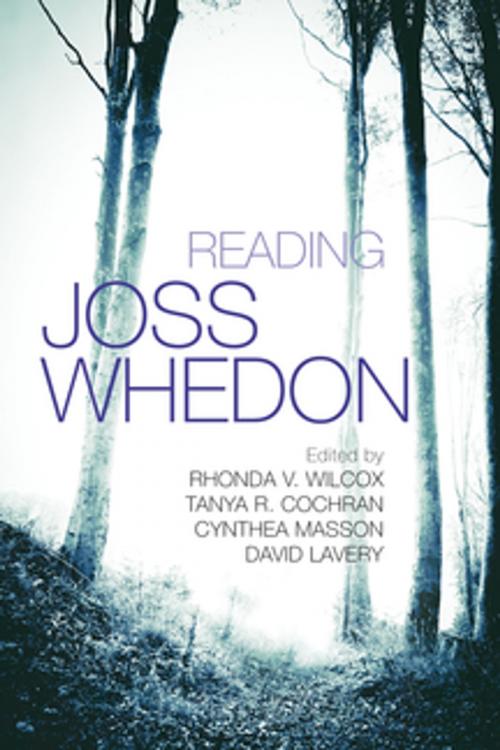| Author: | ISBN: | 9780815652830 | |
| Publisher: | Syracuse University Press | Publication: | May 16, 2014 |
| Imprint: | Syracuse University Press | Language: | English |
| Author: | |
| ISBN: | 9780815652830 |
| Publisher: | Syracuse University Press |
| Publication: | May 16, 2014 |
| Imprint: | Syracuse University Press |
| Language: | English |
In an age when geek chic has come to define mainstream pop culture,
few writers and producers inspire more admiration and response than
Joss Whedon. From Buffy the Vampire Slayer to Much Ado About Nothing,
from Dr. Horrible’s Sing–Along Blog to The Avengers, the works of
Whedon have been the focus of increasing academic attention. This collection
of articles represents some of the best work covering a wide array of
topics that clarify Whedon’s importance, including considerations of narrative
and visual techniques, myth construction, symbolism, gender, heroism,
and the business side of television. The editors argue that Whedon’s work
is of both social and aesthetic significance; that he creates "canonical television."
He is a master of his artistic medium and has managed this success
on broadcast networks rather than on cable.
From the focus on a single episode to the exploration of an entire season,
from the discussion of a particular narrative technique to a recounting
of the history of Whedon studies, this collection will both entertain and
educate those exploring Whedon scholarship for the first time and those
planning to teach a course on his works.
In an age when geek chic has come to define mainstream pop culture,
few writers and producers inspire more admiration and response than
Joss Whedon. From Buffy the Vampire Slayer to Much Ado About Nothing,
from Dr. Horrible’s Sing–Along Blog to The Avengers, the works of
Whedon have been the focus of increasing academic attention. This collection
of articles represents some of the best work covering a wide array of
topics that clarify Whedon’s importance, including considerations of narrative
and visual techniques, myth construction, symbolism, gender, heroism,
and the business side of television. The editors argue that Whedon’s work
is of both social and aesthetic significance; that he creates "canonical television."
He is a master of his artistic medium and has managed this success
on broadcast networks rather than on cable.
From the focus on a single episode to the exploration of an entire season,
from the discussion of a particular narrative technique to a recounting
of the history of Whedon studies, this collection will both entertain and
educate those exploring Whedon scholarship for the first time and those
planning to teach a course on his works.















